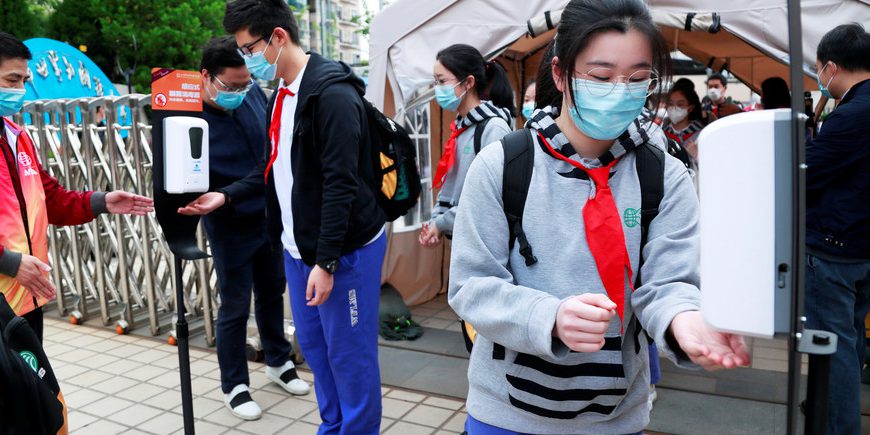China is again battling a severe COVID-19 outbreak of highly infectious omicron variant as it has put 9 million residents of Changchun, capital of Northeast China’s Jilin Province under lockdown and suspended schools in the financial center Shanghai.
According to the National Health Commission, China reported 1,100 domestic infections on Friday, the highest level since the peak of the Wuhan outbreak, a tally that has risen from just over 300 cases a day in less than a week. The surge presents a significant challenge to the country’s ongoing, zero-tolerance approach to the virus which has scattered across 14 provinces and municipalities in the ongoing outbreak including Qingdao, Shanghai, Guangzhou etc.
State media reported, Changchun will undergo three rounds of city-wide nucleic acid testing for COVID-19 starting from Friday. Except for those people involved in epidemic prevention, all working staff from administrative institutions in Changchun will work at home; all enterprises except some certain designated firms providing public services to ensure people’s livelihood will suspend operation, the city authorities said on Friday. Except for basic needs of residents, all other stores will be suspended; schools will be closed, and buses, taxis and subways will be suspended, according to the city authorities.
Severe COVID-19 situation in mainland China and Hong Kong dominated the deliberations among top Chinese leaders including President Xi Jinping and Premier Li Keqiang at China’s annual legislative meet, known as “Two Sessions”, which concluded today in Beijing after a week. After the closing of the session, at his annual press conference, Premier Li circumvented a question about how long China will hold on to its zero-Covid policy. He called for more international cooperation to learn more about how the coronavirus behaves, the protection offered by vaccines and drug research adding that he has been in contact with international institutes and the business sector, adding that China has opened fast track lanes and green corridors for the exchanges of goods and personnel.
In Hong Kong, Premier Li said the Covid-19 pandemic in Hong Kong is “indeed serious” so much so that the Hong Kong government has decided to postpone its leadership election, originally slated for this month, to May. Lu Hongzhou, a health expert in Shenzhen, told the state media that rampant infections in Hong Kong in part triggered the outbreak in Guangzhou, as many truck drivers travel between Hong Kong and Guangzhou and some people illegally cross the border between the two regions.Chinese health experts and officials have said that the frequent, widespread and asymptomatic infections caused by the Omicron variant are posing more difficulties for China to maintain its “zero-COVID” strategy. The experts also noted that the zero-COVID policies will be adjusted in the future when conditions are ripe, when stronger immunological barriers are built, effective medicines emerge, and infection curves outside China are flattened. Currently, more than 87 percent of the Chinese population has been vaccinated, most with inactivated vaccines. But Chinese inactivated vaccine have been found less effective against the Omicron variant and its neutralizing activity was significantly lower than that of a heterologous booster or mRNA vaccine alone.
According to state media, experts believed that adjusting COVID-19 policies cannot be interpreted simply as China abandoning the dynamic zero-COVID strategy. It reported quoting experts, according to a prediction model, if China relaxes restrictive policies, an outbreak that occurs in the country would lead to more than 10 million infections. Chinese experts have noted that no matter what kind of strategy China adopts in fighting coronavirus, it will aim to prevent a massive resurgence of cases which may overwhelm the medical infrastructure.

